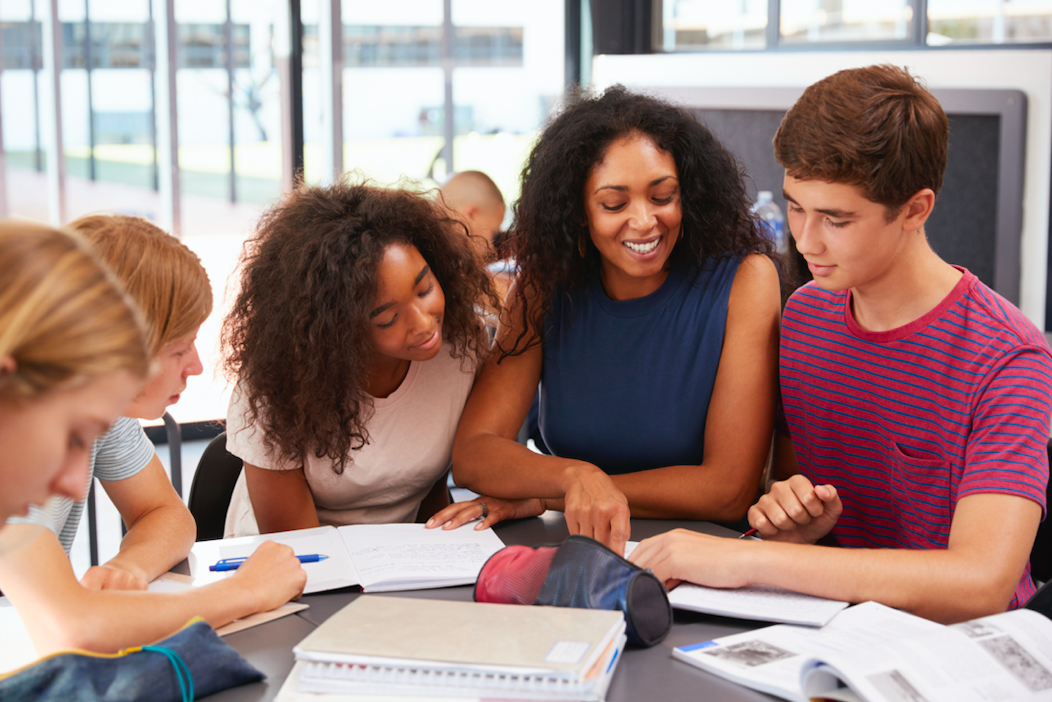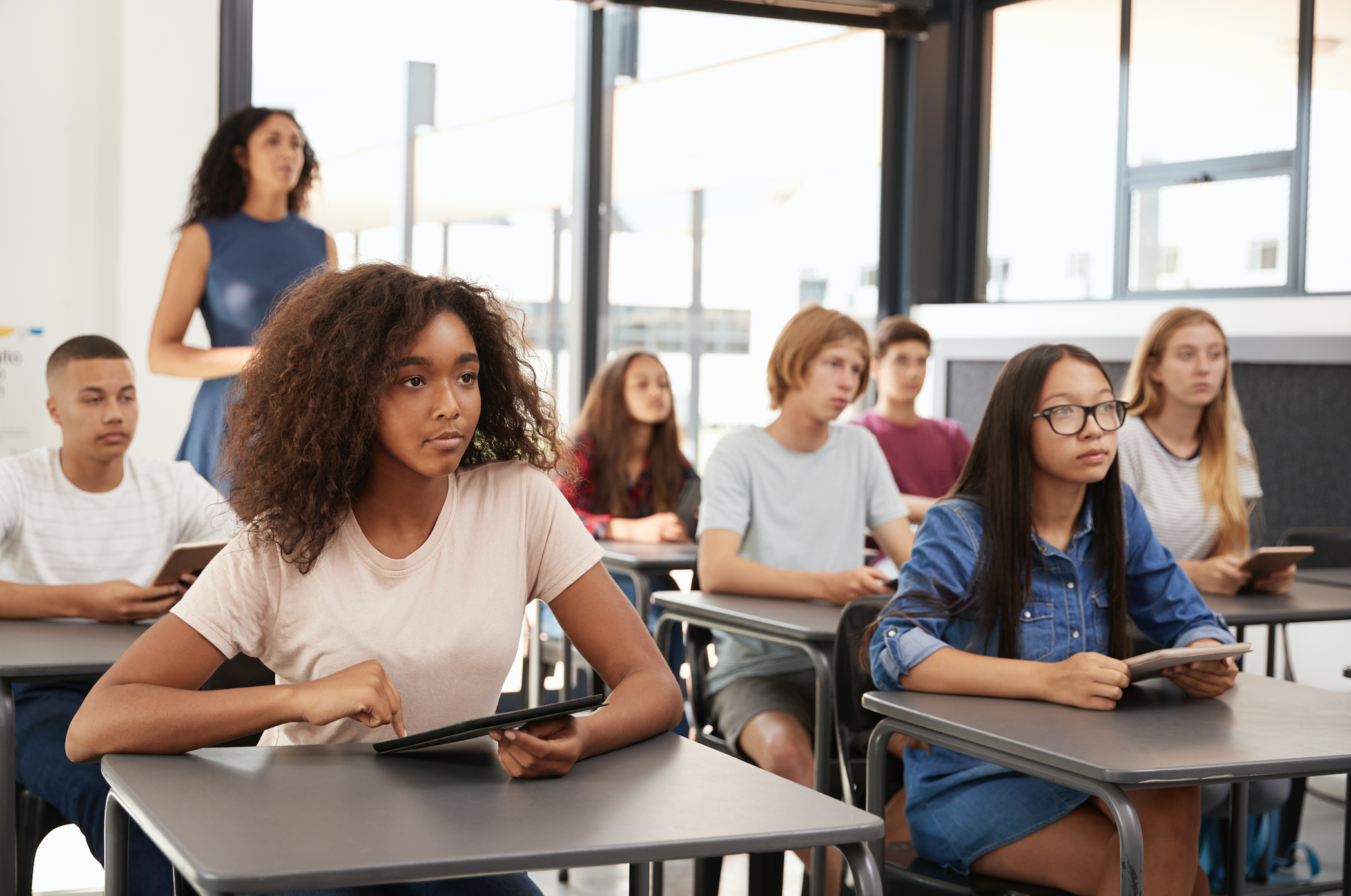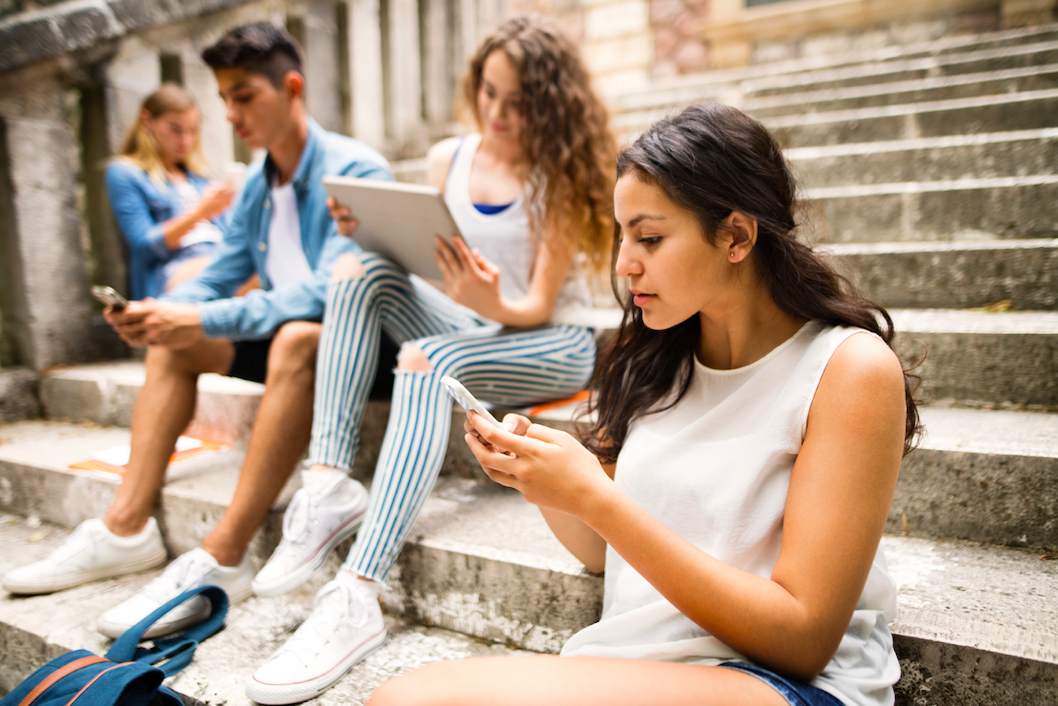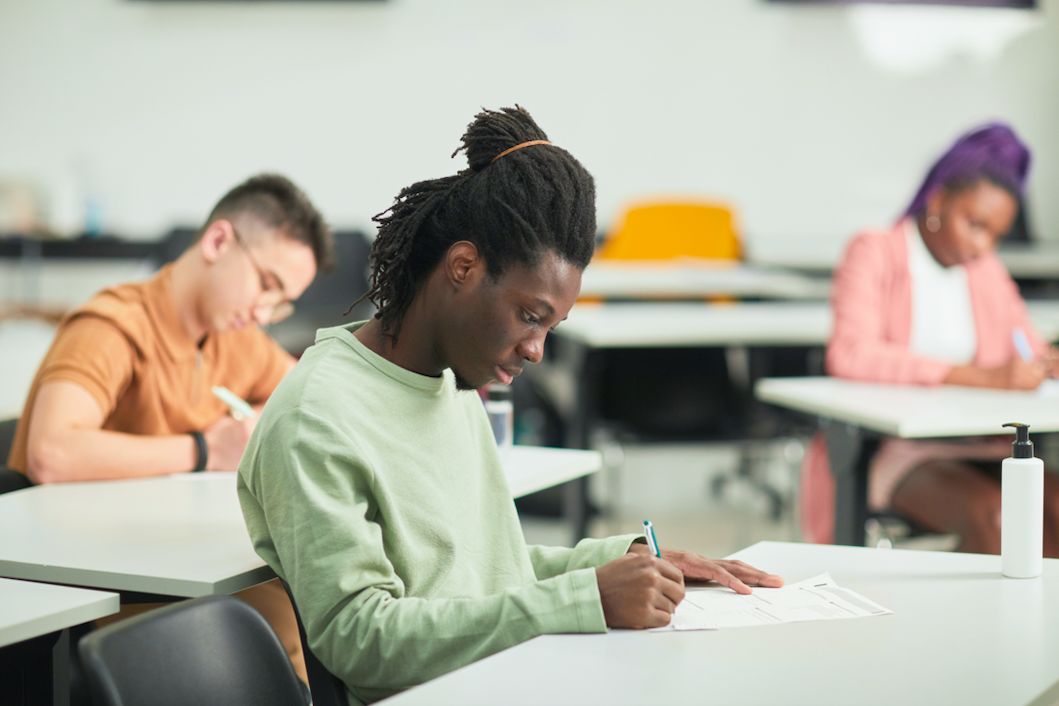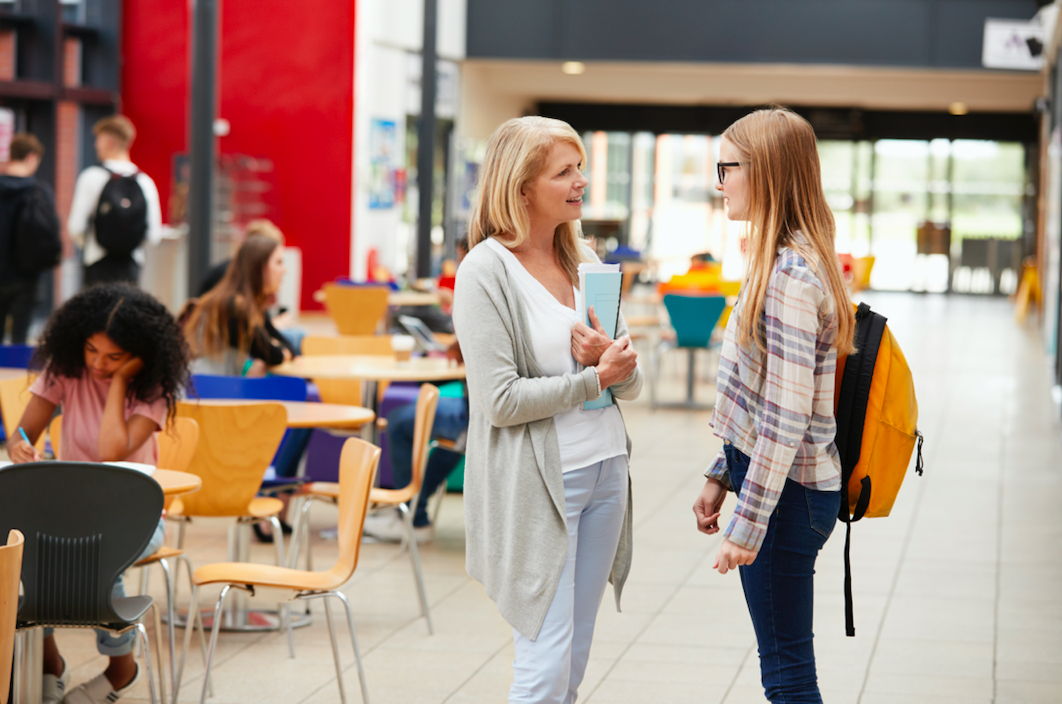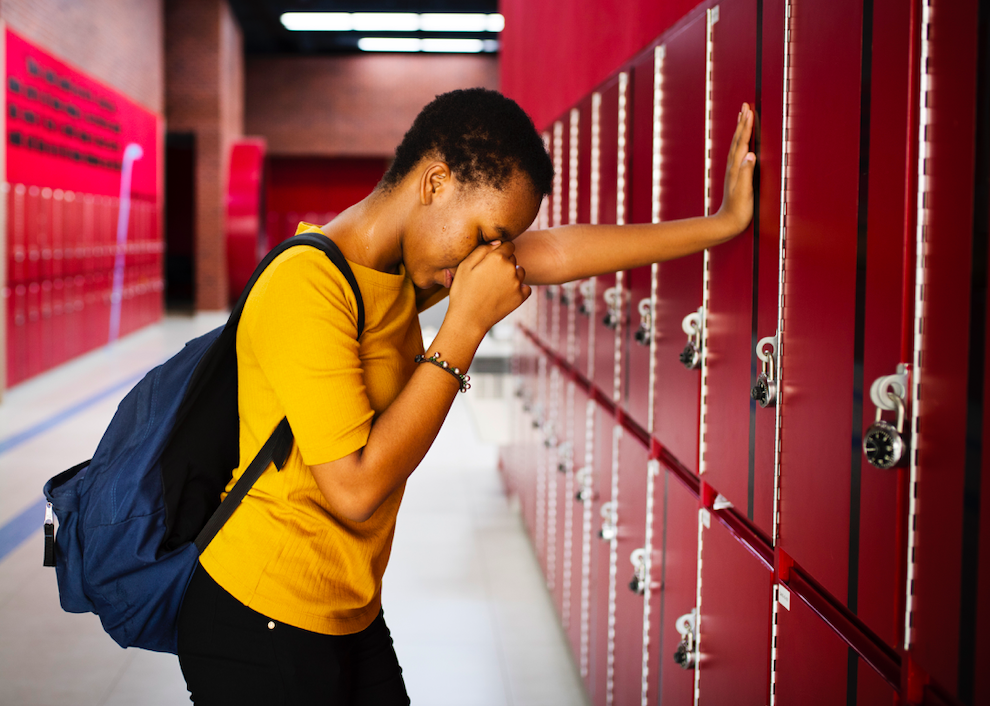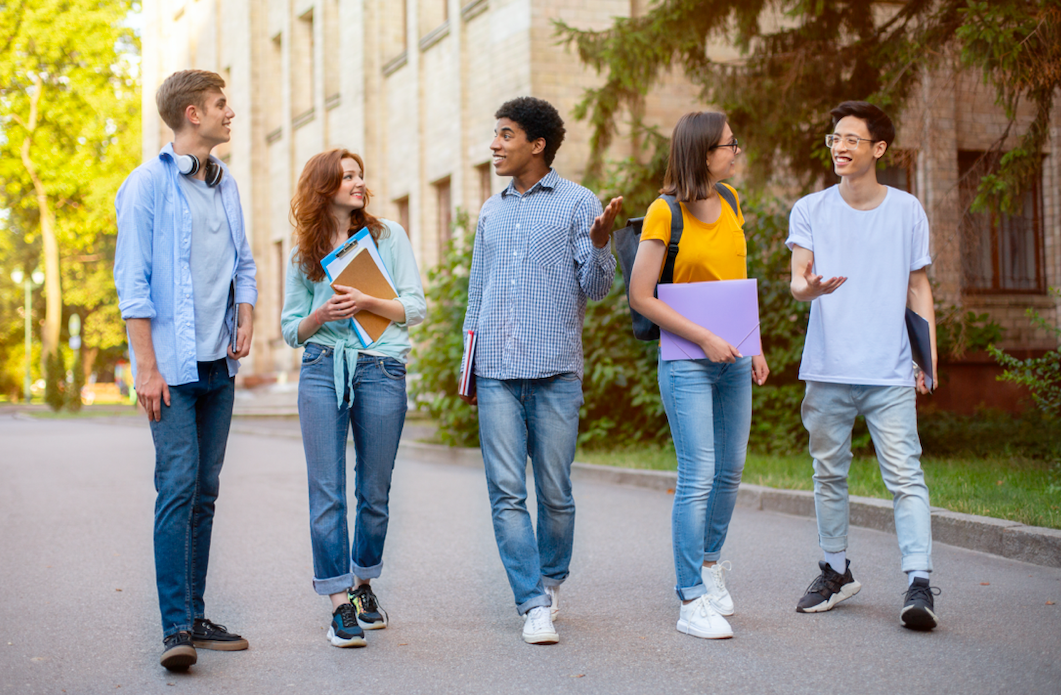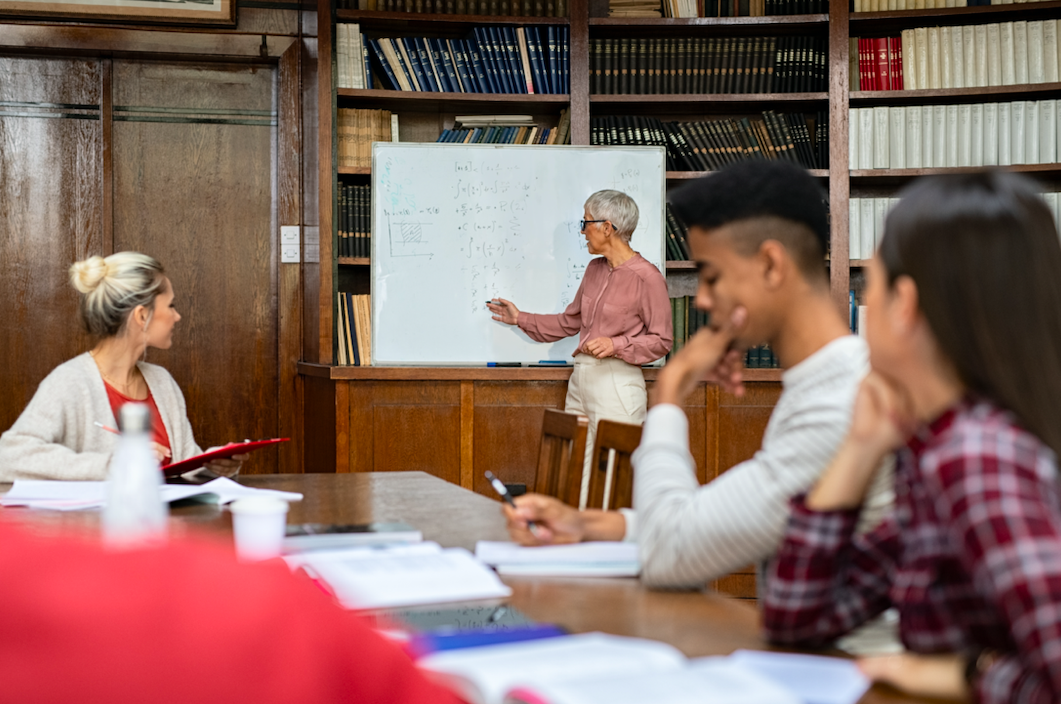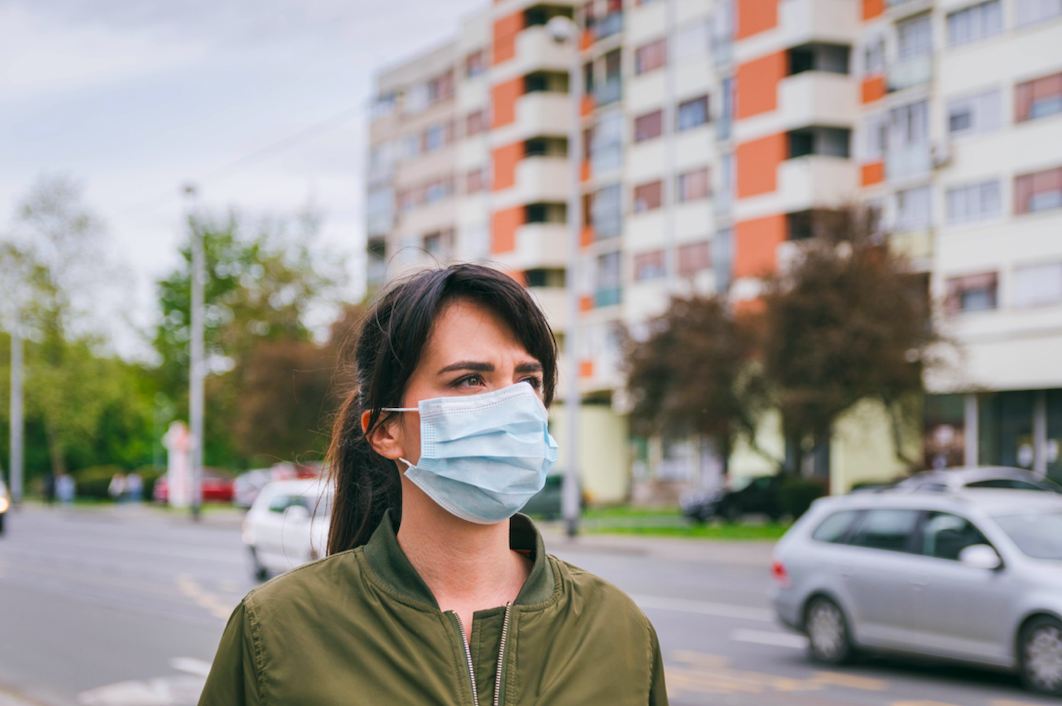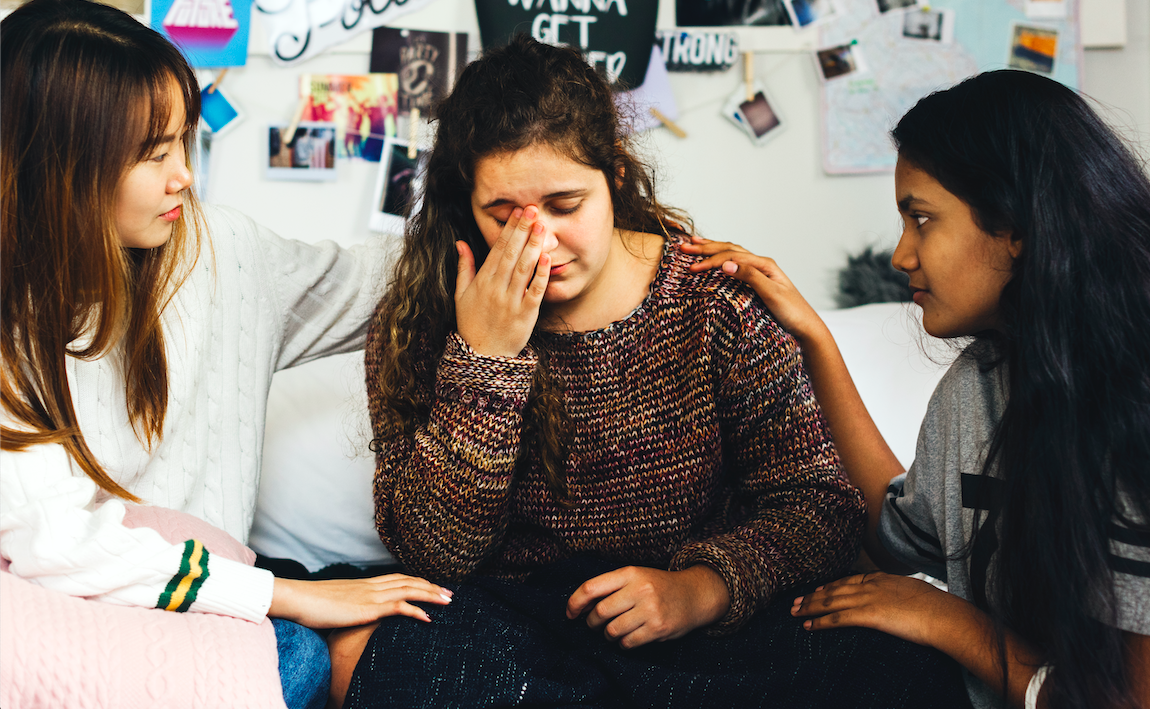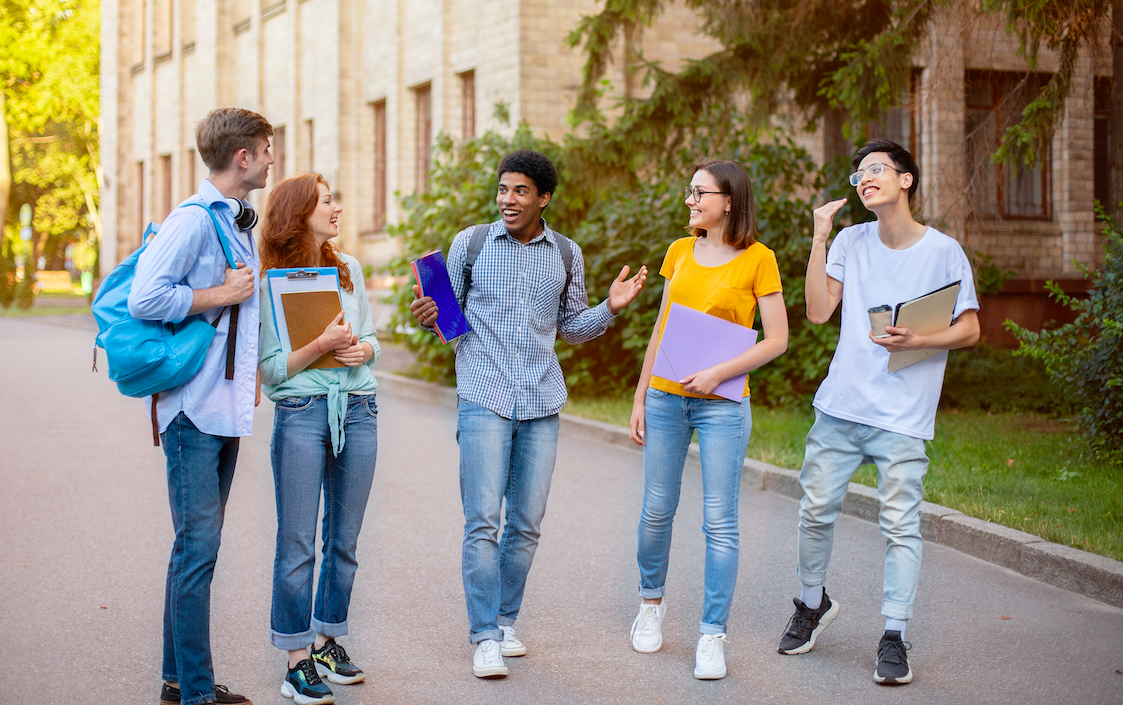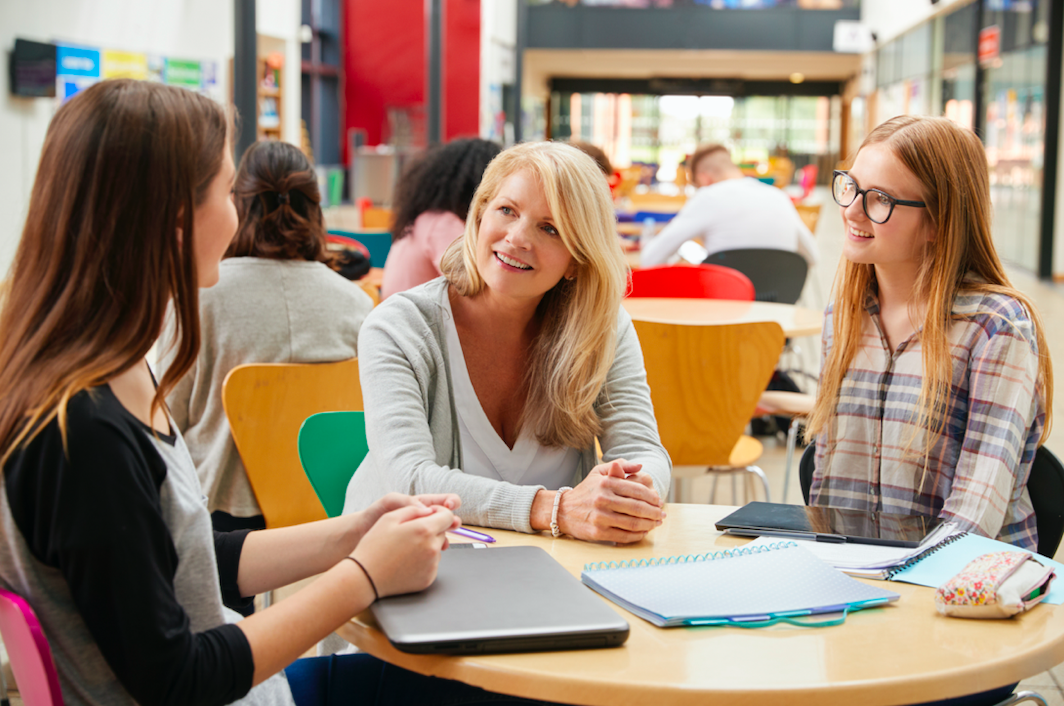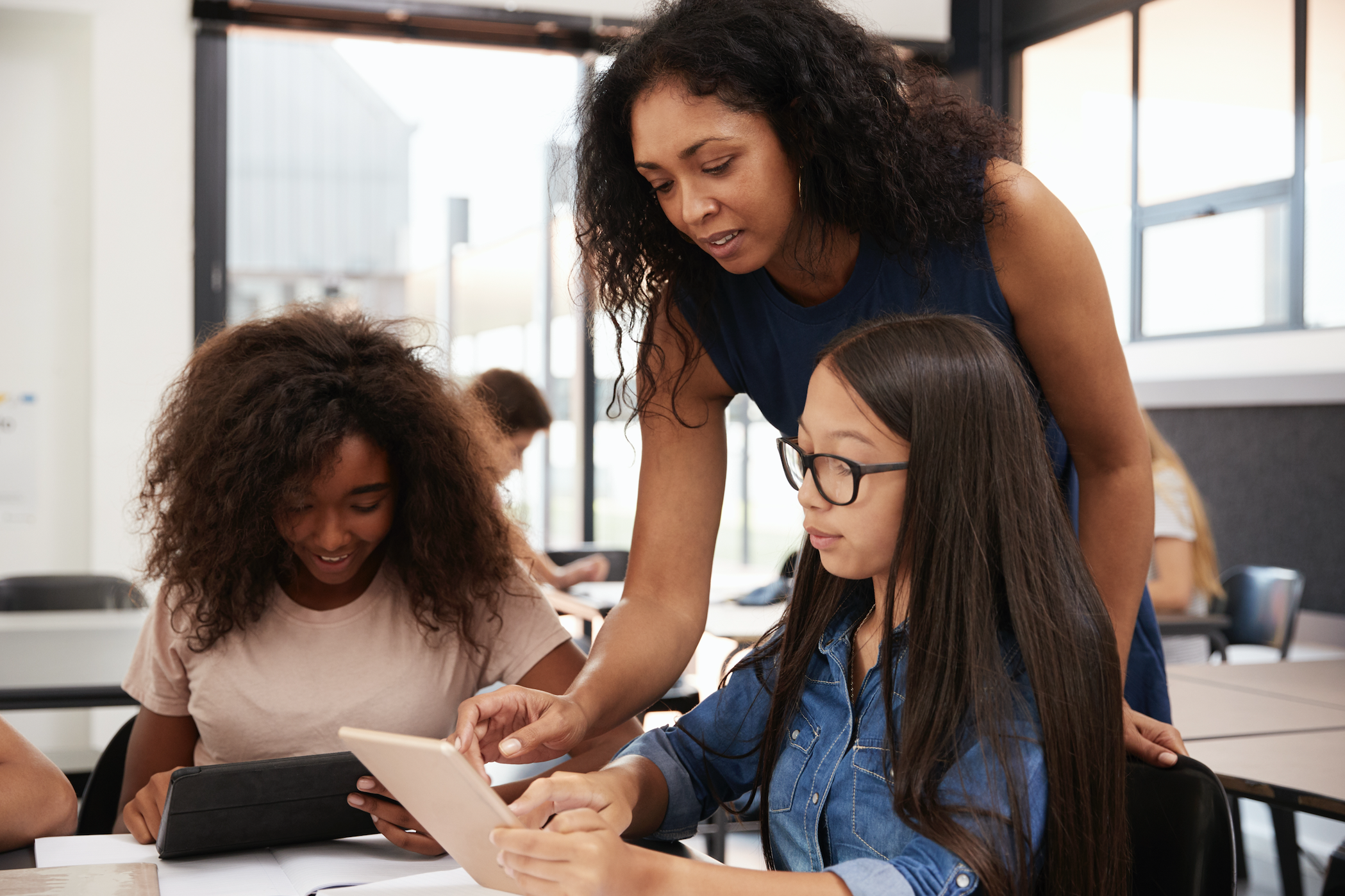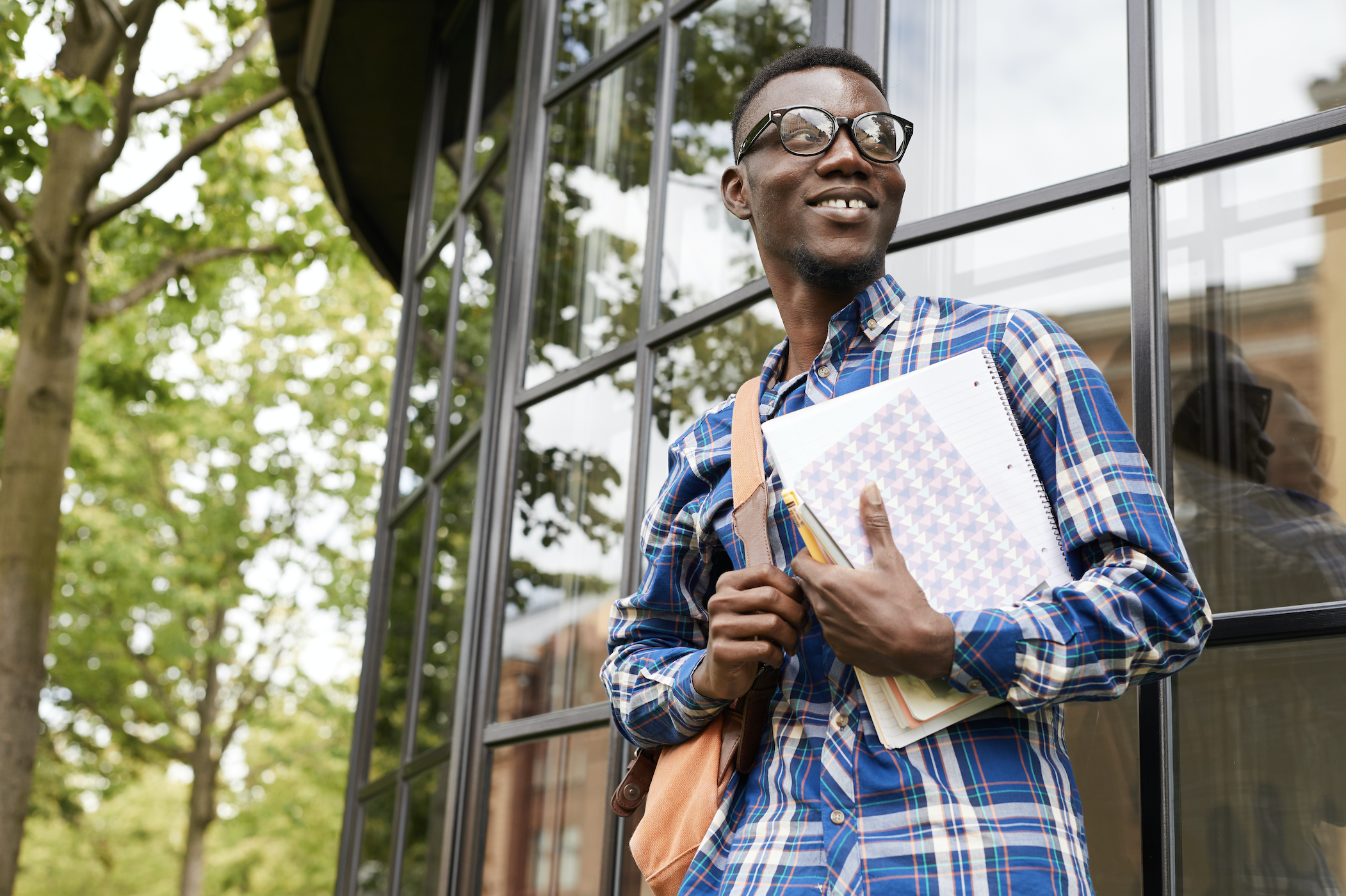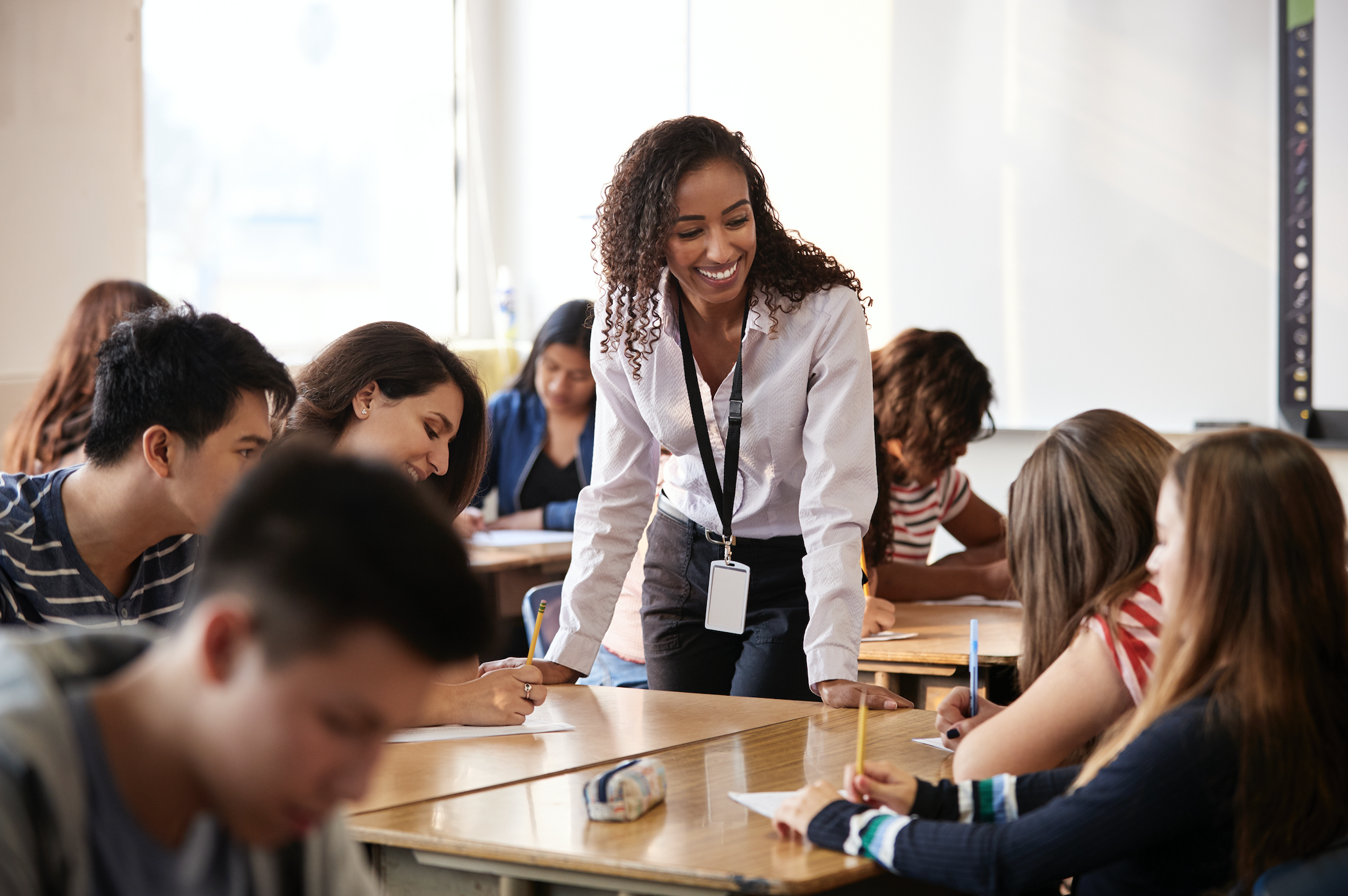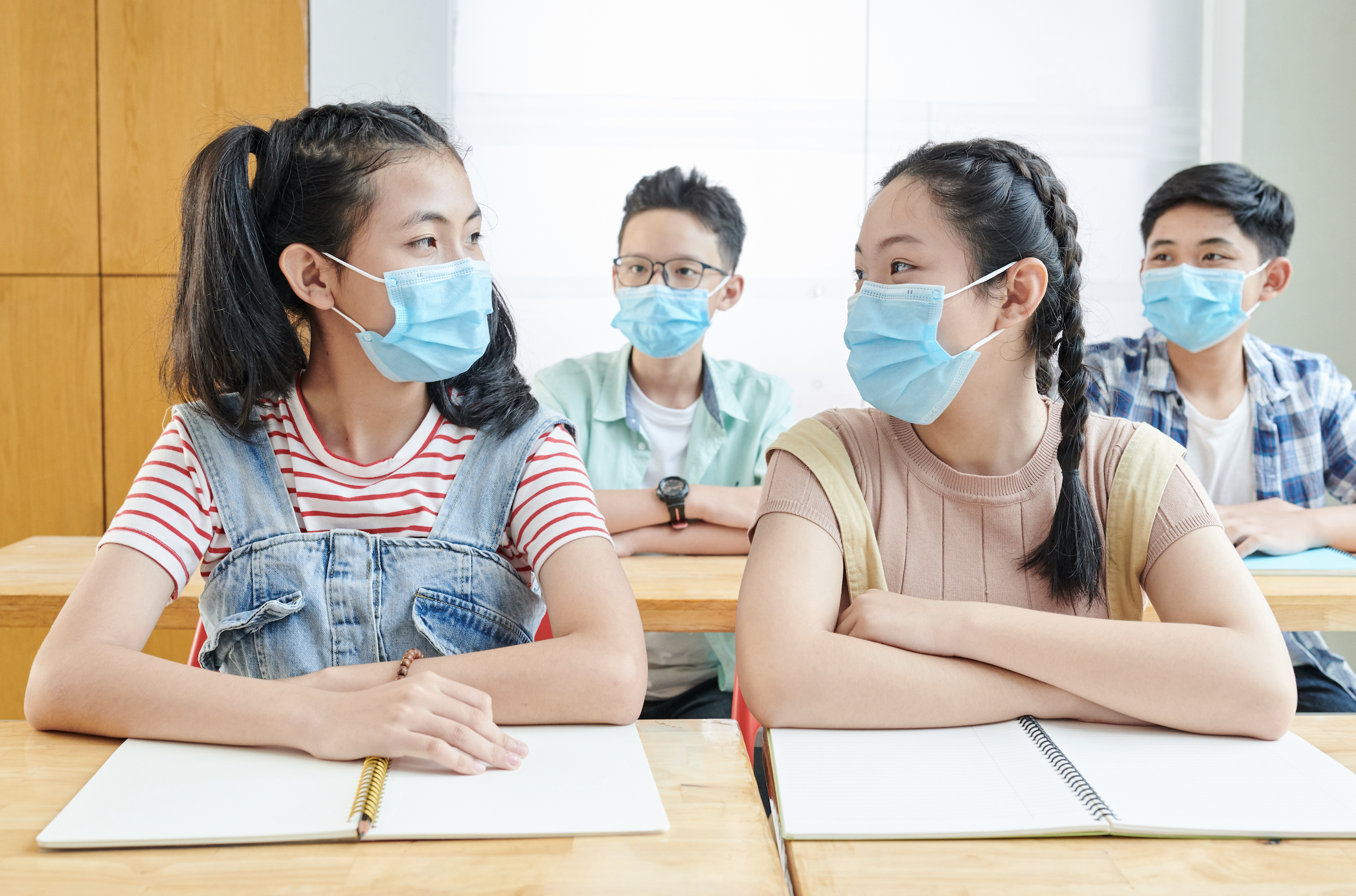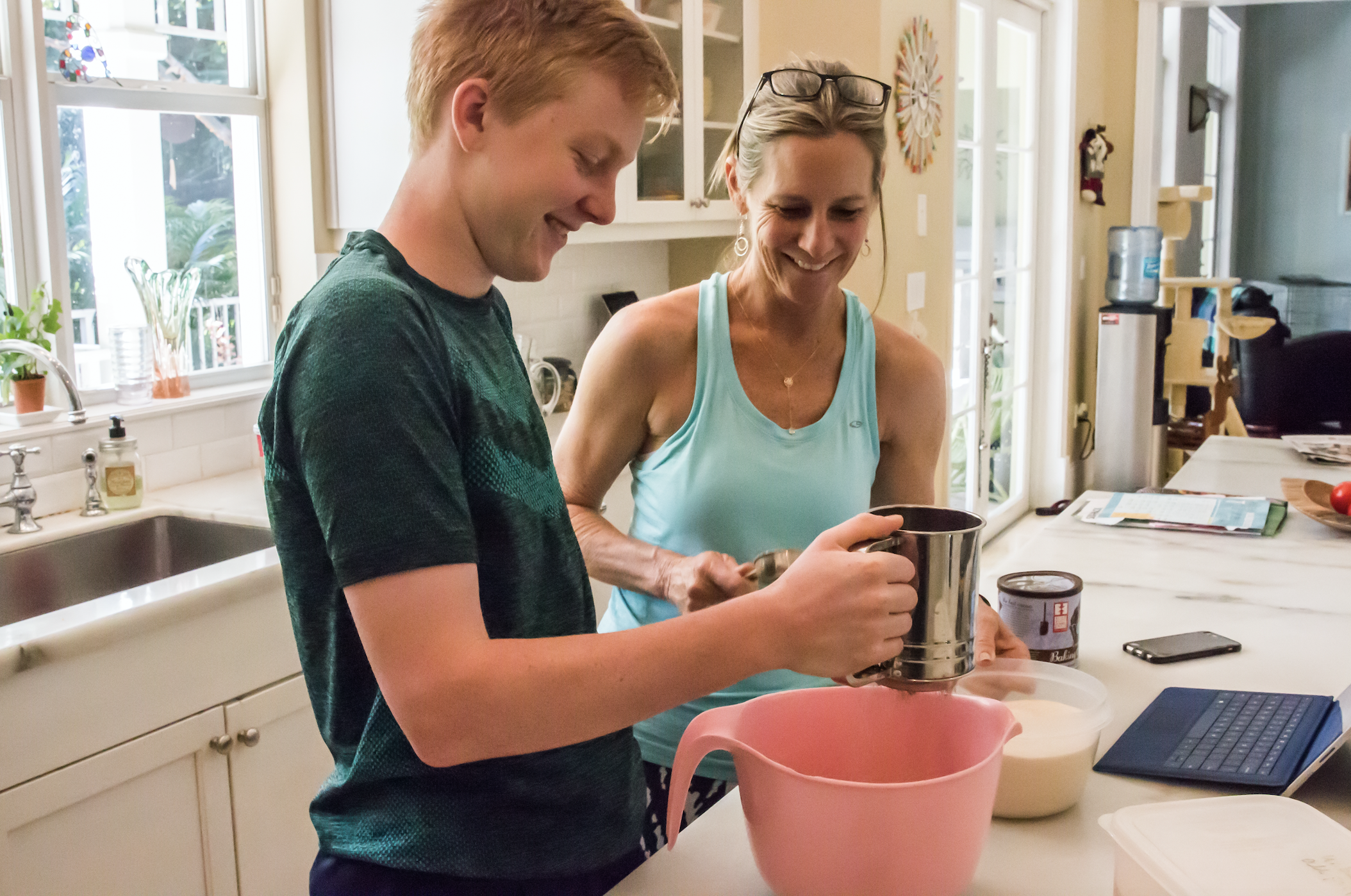Read Before You Lead: Why Every Thermostat Has a Thermometer
By: Tim Elmore In 1990, I began using a metaphor to teach students how they could earn the right to influence others. This metaphor has now become common language among educators: a thermometer and a thermostat. I found that while students are both simultaneously, they also tend to be more of one than the other depending on their environment: Thermometers simply
Helping Students Strike a Balance Between Inclusion and Diversity
By: Tim Elmore Did you hear how Columbia University handled their graduation ceremonies? No, I’m not referring to mask-wearing or social distancing. I’m talking about the administration’s decision to host six separate graduation ceremonies, based on the graduates’ income level, race, ethnicities, and gender preferences. My concern has nothing to do with the pandemic, as each ceremony was a virtual one.
How to Help Students Become Objective Rather than Obsessive
By: Tim Elmore If you met Kayla, you wouldn’t know she was distraught. She smiles a lot. She dresses sharp. She makes A's and B's in school, and she’s got quite a following on Instagram. When I met her, I assumed she was on top of the world. I would’ve never predicted she was panicking every day. Her mother asked if I
How One Group of Student Leaders Found a Way to Manage Mental Health at Their School
By: Tim Elmore I recently spoke at the 2021 Cobb County Student Leadership Academy awards event. Students were present, often with their parents and teachers, to learn about leadership and be recognized for what they’d achieved beyond academics this year. Pope High School was one school that was highlighted. Student leaders at Pope had recognized how much their classmates struggled with school during
Digital Citizenship: Having The Right Conversation With Students
By: Tim Elmore The Supreme Court seems close to issuing a ruling in the case of a student who was kicked off her high school cheerleading team due to an obscene Snapchat post. Brandi Levy, a high school sophomore posted a message where she vents, “F--- school, F--- softball, F--- cheer, F--- everything!” Obviously, she’s a teen who’s letting off steam
How SEL Can Accelerate Maturity in Students
By: Tim Elmore One decade ago, I began to hypothesize about a trait I observed in high school and college students. I continued to be baffled by how much they knew yet how little they’d experienced. I researched the reasons for this and came up with a term, which became the title of a book: artificial maturity. Artificial maturity may sound like
Three Steps To Practice Mindfulness During Testing Season And Teach It To Your Students
By: Nautrie Jones 100% Virtual. 100% In-Person Learning. Hybrid. Synchronous. Asynchronous. If you are in any field relating to education, it is likely that both you and your students are quite familiar with one or all of these terms. This past year has been a challenge for us all. Students have been pushed and pulled in many different ways. Teachers have been stretched and stressed, and,
The Case For Why A Broader Perspective Is A Crucial Skill Your Students Need
By: Tim Elmore Last week, a dear friend of mine swore to me that anyone who celebrates Easter is cursed. Three weeks ago, I met someone who believes the world is flat and anyone who thinks otherwise has been duped by the government. In January, I spoke to a group of people who feel the attack on the Capitol in Washington
Quaranteens: Three Ideas to Help Students Grow in the Pandemic
By: Tim Elmore It’s been over a year since students all over the world were sent home from school and instantly had to learn how to learn from home. Teachers tried to maintain academic standards as students transformed their bedrooms, dens, and kitchens into classrooms to try to meet those standards. Some call these middle school and high school students quaranteens. They’re now
The Importance of Sensitivity in Your Student’s Empathy Skills
By: Grace Hooley I vividly remember the first time a teacher told me I was being too sensitive. It was sixth grade in Mrs. Troy’s social studies classroom, and we were talking about the Trail of Tears and The Native American Removal Act. As she talked about how these native people groups were brutally removed from their land, the reality of our
The Importance of Laughter for Your Student’s Stress Management
By: Tim Elmore Whenever I meet with students, it seems something hilarious is bound to happen. It’s part of adolescence—to seek out the bizarre, to poke fun, and to laugh at ourselves. I’ve come to believe it’s part of dealing with stress. I’ve heard from middle school and high school educators recently who shared some of their amusing moments on Zoom
Why SEL Has to be More Than Just a Class
By: Andrew McPeak A few months back I had the pleasure of teaching three sessions at a district-wide conference for K-12 teachers. As a part of my presentation, I made a point to talk about why building Social and Emotional Learning (SEL) skills during the pandemic was one of the most important challenges we could take on as educators. After all,
Ten Terms That Define Generation Z Today
By: Tim Elmore Some are now calling Generation Z by a new name. They are known by many as Generation Covid, or Generation C. I have heard others call them, the Coronials. I released a book last fall called The Pandemic Population. They are the young people who will forever be marked as those who came of age during a pandemic.
Seven Ideas to Employ if Remote or Hybrid Learning Doesn’t Go Away
By: Tim Elmore Although millions of teachers, students, and parents would say the abrupt transition to remote learning a year ago was problematic, many are now preparing for more of it going into the 2021-22 school year. According to journalist Benjamin Herold, “Many teachers hate it. Millions of parents find it exhausting. A growing body of evidence suggests it has contributed
Introducing a New Monthly Offering: Emotionally Intelligent Leadership with Tim Elmore
By: Tim Elmore At the dawn of 2021, I decided to do something new for you. You may have noticed that blogs over the past several months have started to focus primarily on social and emotional learning and life skills. Growing Leaders made the decision to focus on these topics because we believe that young people need to cultivate these inward skill
Three Helpful Secrets for Putting Empathy to Work
By: Tim Elmore One fascinating study on the subject of compassion was conducted at Princeton Seminary in 1973. Graduate students who studied theology were asked if they were entering the ministry because of innate reasons (i.e., they cared for people) or for circumstantial reasons (i.e., their father was a minister). After the survey, each respondent was told to offer a Bible
How To Help Your Virtual Students Stop “Fitting In” and Start “Belonging” in Your Classroom
By: Andrew McPeak You’ve probably had something like this happen in your classroom this year. You work hard to have fun with your students. You create interesting and fun assignments for them, and you think it’s going well. Then something happens. A student says something harsh like, “I hate this class,” or a parent contacts you to tell you that his
Four Ways to Expand Your Student’s Social Awareness
By: Tim Elmore Last fall, a group of high school freshmen sat in health class discussing personal hygiene. The subject was already deeply personal, but it became awkward when Erica failed to show social awareness. When Jacob was unable to hear a classmate’s comments, Erica reprimanded him, saying, “What are you, deaf? Pay attention!” Erica had no idea that Jacob was, indeed,
Five Ideas to Manage Your Kids’ Screen Time in a Pandemic
By: Tim Elmore This may not surprise you, but since the pandemic started, kids' screen time has doubled. Qustodio, a monitoring device that tracks screen time reports that kids' screen time has increased 100 percent since the COVID-19 outbreak started. One dad noted that his son played video games 40 hours in a single week. That’s a full-time job. Check out
Overcoming the Most Common Mistake Educators Make Leading Generation Z
By: Tim Elmore In 2010, Christopher Havens was sure he’d hit rock bottom. That year, he was sentenced to 25 years in prison for murder. Soon after, a fight earned Havens time in a solitary confinement cell at the Washington State Penitentiary in Walla Walla, Washington. When he arrived at the facility, he assumed that fitting in was his best chance
How to Teach Your Students To Be Responsible Decision Makers
By: Tim Elmore I remember it like it was yesterday. I met with three high school students following a major brawl after a Friday night football game. A group of students from each high school began trash-talking each other, and the clash got heated. Within moments, words were exchanged for fists. The fight required security guards, teachers, and parents to break
Ban Facebook or Build Leaders: How Education Can Bridge the Gap Between Social Media & Social-Emotional Learning
By: Tim Elmore I never thought I’d see this day. The government of the Solomon Islands, a nation of hundreds of individual islands in the South Pacific, is planning to ban the entire Facebook platform, ABC Australia reports. Yep — this is no joke. Facebook will be banned from an entire country. Why? you ask. Incivility. Bad behavior online. Cyber-bullying. Defamation of character.
What the GameStop Market Surge Teaches Us About Generation Z & Millennials
By: Tim Elmore For years, younger generations have been the brunt of jokes by older generations who felt they were immature, lazy slackers who moved back home after college. A Twitter hashtag called, #HowToConfuseAMillennial even went viral, as social media posts often do. Some samples are: Show them a phone book. #HowToConfuseAMillennial Turn off their autocorrect. #HowToConfuseAMillennial Hand them a job
Snow Globes and Training Wheels: How to Begin a New Year
By: Tim Elmore Following the holiday break, I wanted to offer you a word of encouragement. Every person I met in 2020 could hardly wait for the new year to begin — including frontline workers who are exhausted from their labors, folks working from home who are lonely and annoyed, and teachers who’ve had to manage their own children as well
Who Wins When Social and Emotional Learning Meets Real Life?
By: Tim Elmore In times like these, we can all use some good news. This past year, 2020, was quite a year, complete with a pandemic, protests, political polarization, pay reductions, and panic attacks. A friend told me on November 1 (when we switched to standard time) that he didn’t set his clocks back. The last thing he needed, he said,
Why Leaders Miss New Opportunities and How to Fix That in 2021
By: Tim Elmore Tony Piloseno, an Ohio State University senior, took a part-time job working at a local Sherwin-Williams store a few years ago. Unlike many employed college students, he actually enjoyed his work. In fact, he loved it so much he started a TikTok account just to show off all the amazing colors that can be made by mixing Sherwin-Williams
Tim Elmore’s Favorite Things from 2020
By: Tim Elmore Each year, I usually post a list of my favorite books I’ve read the previous 12 months. This year, I am going to mix it up and go wider. Below, I have listed “a few of my favorite things,” (thank you Julie Andrews) thinking this might stimulate your mind and imagination. No doubt, 2020 was a strange and
The One Thing I Do at the Beginning of Each Year
By: Tim Elmore Last week, I posted a ritual I perform at the end of each year. A second ritual I do is a natural follow-up. It enables me to enter a new year on purpose. After I invest a morning reviewing the previous year, I spend the second half of the day previewing the new year. I think, write, and
If It Weren’t 2020
By: Tim Elmore The year started well, with our work and our money Our weather was warming, and our spring became sunny. Our life was quite normal, and resources were plenty. And it might have continued…if it weren’t 2020. As the spring unfolded, we got new direction, We were told to go home to avoid an infection. It was COVID-19 and it spread through the nations. No one
Three Words of Encouragement For You This Holiday Season
By: Tim Elmore Don’t tell me. I’ve already heard it — you are ready for 2020 to be over, to turn a new page and start a new chapter for your story in 2021. Am I right? I know. Me too. But before you end the year, may I remind you of what you’ll need to carry with you into next year. Because
Six Warning Signs Your Students Are Struggling with the Pandemic
By: Tim Elmore I wonder if adults fully comprehend what’s going on inside the minds of kids today. Mental health issues were already mounting among those in Generation Z, but the Pandemic has taken its toll and left them in worse mental and emotional health than ever. In Japan, more people died from suicide than COVID-19 in 2020. Sometimes, we can overreact
Four Secrets to Virtually Approach Social and Emotional Learning
By: Tim Elmore Have you ever heard of BeauTubers? This is a term describing beauty-YouTubers. A beauty YouTuber, commonly referred to as a beauty vlogger, beauty guru, beauty influencer, or Beautuber, is a person who creates and posts videos to YouTube about cosmetics, fashion, hair-styling, nail art, and other beauty-related topics. As of 2016, there were more than 5.3 million beauty
How to Help Gen Z Develop Empathy in Personal Relationships
Today’s blog is from Grace Hooley. Grace is a next gen researcher, writer, and Content Coordinator for Growing Leaders. While I (Grace) was in university, I studied with a fellow peer who had his finger on the pulse of the world. In every class or club he was in, Nick spoke of justice and political reconciliation that should be happening on
Three Social and Emotional Skills to Prepare Gen Z for Their Careers
Laura is an HR executive who just finished her 14th interview in a single week with a prospective job candidate. We spoke by phone at the end of her week, and she told me she was exhausted. When I said I understood her natural weariness, she said it wasn't the volume of candidates that wore her out but rather their
The Importance of Developing Emotionally Intelligent Schools and Homes
I was stunned to hear what had happened at Stanley Middle School in Lafayette, California. Seventh-grader Merek Mastrov, who is 12 years old, missed a total of 90 minutes of Zoom classroom time. What step did the school take in response? Merek’s dad got a letter saying his son was truant and subject to arrest. Wait. Did they say arrest? Yes, according to
Four Reasons Why a Gap Year Might be the Best Way for Students to Build SEL Skills (Even During a Pandemic)
Today’s blog post is from Steve Moore. Steve is an author, speaker, and president of Growing Leaders. I came across an interesting letter written by a father on behalf of his discouraged son: Please forgive a father who is so bold as to turn to you…in the interest of his son. [He] is 22 years old… I can assure you that he
The Secret to Starting Real-Life Conversations with Your Students
I made a discovery recently. The schools that experience the toughest challenges with a remote learning model (or even a hybrid schedule) are the ones that continue to push for keeping academic scores high, at the expense of everything else. I asked a teacher recently how her remote learning experience was going. She said: “I’m exhausted. We’ve implemented the A/B model, and
The Pros & Cons of E-Learning to Build Social & Emotional Learning Skills
For many years now, researchers in educational fields have been trying to understand the influence of technology in the classroom. Is it helping? Is it hurting? Should we be using it? Of course, all of the answers to these questions may not be moot. After all, technology isn't IN the classroom today, technology IS the classroom. Just a couple of weeks
Why Many Students Still Aren’t Ready for Virtual Learning
I watched a revealing video made by Olivia, a freshman student from Toronto. It’s called “Numb,” and it’s just over three minutes long. It describes what life feels like for a kid who’s been forced to learn remotely. If you have three minutes, I encourage you to watch it here before reading my article below: Olivia (Liv) isn’t an unmotivated student.
The Secret to Leading Poorly Performing Students Well
If you’re like me, you’ve attended countless webinars on leading students during a pandemic. You’ve probably read so many articles on COVID-19 you feel like a cross between a therapist and a physician's assistant. You’ve likely been on video calls so much your eyes are blurry and you’ve contracted Irritable Zoom Syndrome. (Just a little humor there.) On top of that,
Helping Generation Z Use Self-Awareness to Create Self-Confidence
It didn't take long for people to recognize that Babe Ruth was a special athlete. The Sultan of Swat was a natural baseball player, better at hitting and pitching than most ballplayers in his time. In fact, at one point, a researcher from Columbia University coaxed him to undergo an experiment that would reveal what made him so different. Ruth
How Emotional Intelligence Increases Students’ Influence
Chuck was a bully on my high school campus. Back in the day, everyone in our class dreaded encountering him. On a good day, he was merely rude or offensive. On a bad day, he’d be downright abusive or violent. Chuck came from a troubled background but knowing that didn’t change the way peers felt about him. The entire tone
Educators: The Most Important Leadership Trait You Can Teach This Year
A young couple recently moved into a new house. While eating breakfast their first morning, the young woman saw her neighbor hanging her wash on the clothesline in her backyard. “That laundry looks dirty. She doesn't know how to wash correctly. Maybe she needs better detergent,” remarked the wife. Her husband looked on, but remained silent. Day in and day out,
How to Help Generation Z Redefine Resilience and Overcome Life’s Challenges
I’ve been white water rafting twice in my life, once in California and once in Colorado. It’s completely different from the lazy river rafting I’ve enjoyed on the Chattahoochee River near Atlanta. When rafting on the rapids, I don’t go out without an experienced guide who knows how to handle the rushing waters, rocks and bends in the river. I
Two Ideas to Enable Students to Engage and Retain a Virtual Lesson
Public education has been founded upon memorization and testing for over a century. While we all agree we must do more than drill our students to memorize curriculum, remembering information will always play a role in learning. Today, millions of teachers face an even more arduous task of doing all of this remotely. So, what can teachers do to help kids
Four Huge Mistakes Schools Have Made Over the Years
I sat in a well-lit room, full of colorful posters on the walls. Twelve people from four generations sat in a circle. Our goal was to discuss how our world had changed over the decades and if we felt those changes made us better or worse. You can imagine our discussion was as colorful as the posters on the walls. It
How to Prepare Gen Z for the ‘New Normal’ After the Pandemic
When I was a young kid, seat belts were introduced to automobiles. I remember in 1968 when the federal government made them mandatory. At first, they were only lap belts with no strap across the chest. People claimed they hindered movement and wrinkled their clothes. It was a strange time as I watched several adults refuse to wear them at
Five Ingredients to Help Students Recover Following a Pandemic
The population of young people, ages 16 to 24, were already facing mental health problems. Now they feel delayed by COVID-19, and it has added to their anxiety levels. This portion of Generation Z and Millennials are disadvantaged. While it sounds strong, many of them feel: Postponed Pushed aside Penalized The teens in this group believe part of the typical American
Three Questions That Challenge Students to Lead
A few weeks ago, seven high school and college students organized an effort to get a petition signed that would create a mask-wearing policy in their city of Savannah, GA. I spoke to them about their strategy to reach their goal and why it felt so important. Each student found his or her own way to articulate why their aspiration
What Parents and Teachers Can Do That Google Cannot Do
Many parents fret that they’re not having the same conversations with their children that they did with their parents when they were kids. Teachers fret that engaging students in the classroom is tougher today because they compete against YouTube, Netflix, and Tik Tok. Coaches and youth workers fret that keeping a student athlete’s attention is tough because they’re up against Madden NFL

